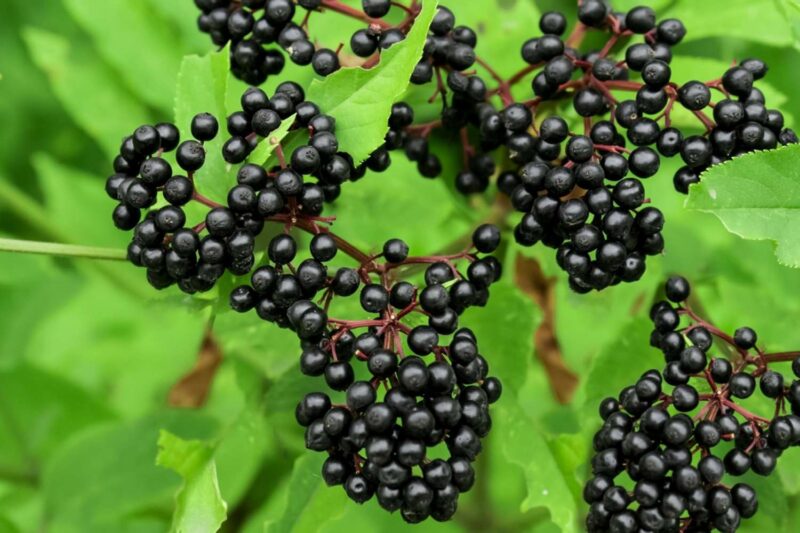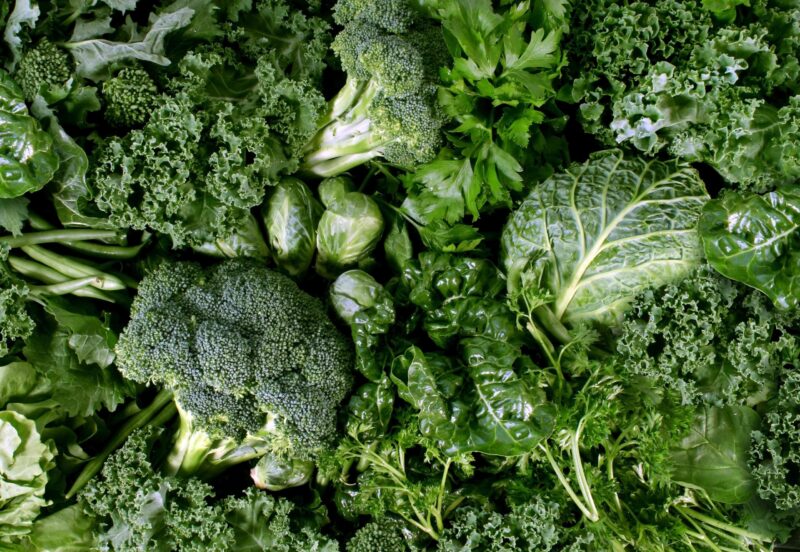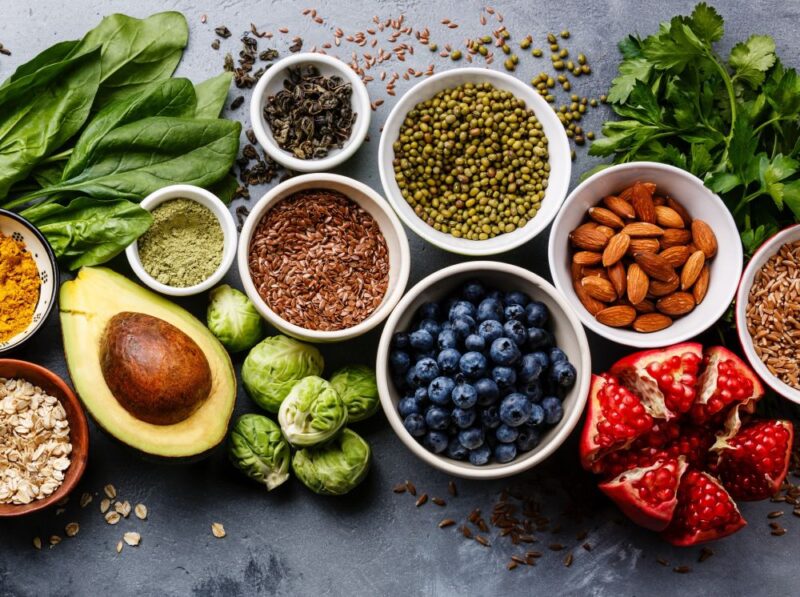In a world where chronic stress, pollution, and processed foods have become the norm, our immune system often faces challenges it’s not fully prepared for. Antioxidant-rich superfoods offer one of the most natural and effective ways to protect our bodies, fight inflammation, and maintain optimal vitality.
These foods are loaded with compounds that protect cells from oxidative damage, strengthen immune defenses, and promote sustained energy levels.
This article breaks down the most powerful antioxidant-rich superfoods backed by scientific research – along with practical ways to make them a regular part of your diet.
Let’s see the antioxidant benefits at a glance:
| Superfood | Key Antioxidants | Primary Nutrients | Proven Health Benefits |
|---|---|---|---|
| Elderberry | Anthocyanins, flavonoids, vitamin C | Vitamin A, fiber, phenolic acids | Reduces cold/flu duration, supports heart health, balances blood sugar, protects skin |
| Blueberries | Anthocyanins, resveratrol | Vitamin C, vitamin K, fiber | Improves memory, reduces inflammation, supports cardiovascular health |
| Spinach | Lutein, beta-carotene, vitamin C | Iron, folate, magnesium | Enhances immune defense, supports detoxification, promotes bone health |
| Almonds | Vitamin E, polyphenols | Healthy fats, magnesium | Protects cells, lowers cholesterol, reduces inflammation |
| Oranges | Vitamin C, hesperidin | Fiber, potassium | Boosts immunity, supports vascular health, reduces kidney stone risk |
| Green Tea | Catechins (EGCG) | Manganese, fluoride | Protects brain, supports metabolism, reduces heart disease risk |
| Carrots | Beta-carotene, lutein | Vitamin A, fiber | Improves vision, supports immune system, reduces inflammation |
1. Elderberry: A Time-Tested Immune System Defender

Elderberry (Sambucus nigra) has been used for centuries in herbal medicine to prevent and treat colds, flu, and other respiratory infections. Modern research supports many of these traditional uses, revealing an exceptionally high concentration of anthocyanins, flavonoids, vitamin C, and phenolic acids.
Key medical benefits of elderberry:
- Immune support – Multiple studies show elderberry can help reduce the severity and duration of colds and influenza by inhibiting viral replication and enhancing immune response.
- Anti-inflammatory effects – Anthocyanins in elderberries reduce inflammation markers, potentially lowering the risk of chronic diseases linked to systemic inflammation.
- Cardiovascular protection – Elderberry extracts may help reduce LDL cholesterol, regulate blood pressure, and improve arterial function.
- Blood sugar balance – Polyphenols help slow glucose absorption and improve insulin sensitivity, supporting metabolic health.
- Antioxidant protection – Potent anthocyanins protect DNA from oxidative damage, which can play a role in cancer prevention.
- Skin health – Elderberries’ vitamin A and phenolic compounds help maintain collagen integrity and protect against UV-induced skin aging.
For a concentrated option, elderberry juice delivers these benefits in a cold-pressed, non-concentrate form without added sugar, water, or preservatives – making it one of the purest ways to harness elderberry’s power.
Always check for third-party testing or certifications that validate the product’s quality and purity. It’s also beneficial to choose brands that provide information on their sourcing practices to ensure that the elderberries are harvested sustainably.
2. Berries: Brain, Heart, and Immune Health in One

Blueberries, raspberries, blackberries, and strawberries are rich in vitamin C, anthocyanins, quercetin, and ellagic acid – compounds linked to improved cardiovascular and neurological health.
Clinically supported benefits:
- Brain health – Regular berry consumption is associated with slower cognitive decline and improved memory, thanks to enhanced neuronal signaling and reduced oxidative stress in the brain.
- Cardiovascular health – Anthocyanins improve endothelial function, reduce arterial stiffness, and lower blood pressure.
- Cancer protection – Ellagic acid and other polyphenols can inhibit the growth of certain cancer cells in laboratory studies.
- Digestive wellness – High fiber content supports gut microbiota diversity, which plays a central role in immunity.
Frozen berries retain most of their antioxidants, making them a convenient year-round option.
3. Leafy Greens: The Detoxifying Immune Boosters

Spinach, kale, collard greens, and Swiss chard are nutritional powerhouses rich in vitamins A, C, K, folate, magnesium, and chlorophyll.
Evidence-backed benefits:
- Immune system activation – Vitamin C enhances white blood cell function, while vitamin A strengthens mucosal barriers that block pathogens.
- Detoxification support – Chlorophyll aids in binding and removing certain toxins from the body.
- Bone health – Vitamin K1 supports calcium regulation and bone mineralization.
- Anti-cancer potential – Lutein and beta-carotene are linked to reduced risk of certain cancers, especially digestive tract cancers.
Light steaming increases the bioavailability of antioxidants like lutein while keeping vitamin C loss minimal.
4. Nuts and Seeds: Anti-Inflammatory and Heart-Protective
Almonds, walnuts, flaxseeds, chia seeds, and sunflower seeds are concentrated sources of vitamin E, selenium, alpha-linolenic acid (ALA), and polyphenols.
Health advantages supported by research:
- Inflammation reduction – Omega-3 fatty acids from walnuts and flaxseeds reduce inflammatory markers like C-reactive protein.
- Cardiovascular support – Regular nut consumption is linked to lower LDL cholesterol and reduced risk of heart disease.
- Cellular protection – Vitamin E acts as a fat-soluble antioxidant, protecting cell membranes from oxidative damage.
- Metabolic benefits – Seeds provide magnesium, which supports insulin sensitivity and energy production.
A handful a day can significantly increase antioxidant intake without excess calories.
5. Citrus Fruits: Immune-Activating Vitamin C Sources
Oranges, lemons, limes, and grapefruits are best known for their high vitamin C content, but they also contain hesperidin, naringenin, and limonoids – compounds with additional health-promoting effects.
Medical benefits:
- Cold and flu defense – Vitamin C enhances the production and function of white blood cells.
- Vascular health – Hesperidin supports blood vessel elasticity and circulation.
- Anti-cancer properties – Certain citrus bioflavonoids can inhibit cancer cell proliferation in lab studies.
- Kidney stone prevention – Citric acid helps reduce calcium oxalate stone formation.
Fresh citrus, rather than juice, maximizes benefits by preserving fiber and minimizing sugar spikes.
6. Green Tea: The Anti-Aging Beverage

Green tea contains a unique profile of polyphenols, especially EGCG (epigallocatechin gallate), which has been extensively studied for its protective effects.
Proven health effects:
- Cellular protection – EGCG is a powerful antioxidant that combats DNA damage and supports cellular repair.
- Heart health – Regular green tea drinkers have a lower risk of coronary artery disease.
- Metabolic benefits – Green tea catechins improve fat oxidation and help regulate blood sugar levels.
- Neuroprotection – May reduce the risk of neurodegenerative diseases like Alzheimer’s by inhibiting plaque formation in the brain.
Adding lemon can enhance catechin absorption, and drinking it without milk preserves antioxidant activity.
7. Colorful Vegetables: The Multi-Nutrient Immunity Boost
Carrots, bell peppers, beets, and sweet potatoes are rich in beta-carotene, vitamin C, and polyphenols.
Well-researched benefits:
- Eye health – Beta-carotene supports night vision and prevents macular degeneration.
- Immune enhancement – Vitamin C and plant compounds help white blood cells respond more effectively to pathogens.
- Anti-inflammatory – Polyphenols in beets and peppers help lower systemic inflammation.
- Digestive health – Fiber supports gut microbiome diversity, which directly influences immune strength.
Aim for “eating the rainbow” daily to ensure you’re covering the full spectrum of phytonutrients.
Making Antioxidant-Rich Eating a Lifestyle

While including these foods occasionally can provide some benefits, consistent intake is key to maximizing their effects.
A balanced daily routine might start with berries and chia seeds mixed into oatmeal or yogurt for breakfast, followed by adding leafy greens to lunch wraps, salads, or soups.
Between meals, reaching for a handful of nuts or a few citrus wedges can keep energy levels steady.
In the evening, winding down with a cup of green tea or a warm elderberry-infused drink offers a calming way to end the day while nourishing your body.
Final Thoughts
Antioxidant-rich superfoods do more than just protect against oxidative stress – they actively strengthen the immune system, improve cardiovascular function, and help maintain vitality well into the later years of life.
Prioritizing antioxidant-rich nutrition is one of the most effective ways to support long-term health and resilience. By focusing on a diet abundant in naturally protective compounds, you give your body the tools it needs to defend against everyday stressors, maintain energy, and promote cellular repair.

